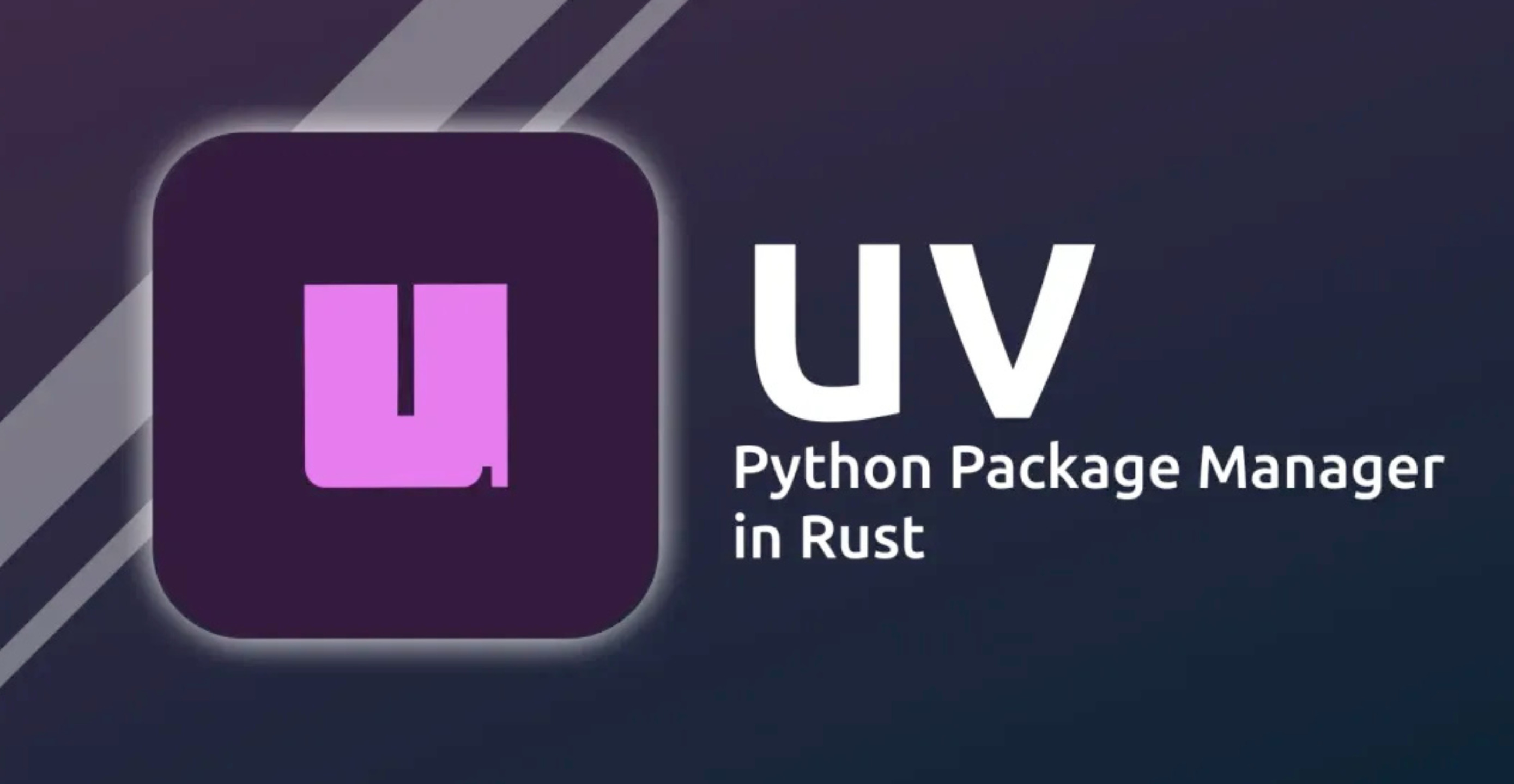A while ago, I wrote a post about using poetry as a python package manager. Today, I want to introduce you to another package manager called uv.
What is UV?
According to Astral, the author of uv, uv is an extremely fast Python package installer and resolver, written in Rust, and designed as a drop-in replacement for pip and pip-tools workflows.
uv represents a milestone in our pursuit of a “Cargo for Python”: a comprehensive Python project and package manager that’s fast, reliable, and easy to use.

Setting Up uv
1 - Installation
pip install uv
pipx install uv
2 - Creating a virtual environment
uv venv --python 3.12
3 - Activating the virtual environment
source .venv/bin/activate
4 - Managing packages
First, we will need a pyproject.toml file. Here is an example of a pyproject.toml file:
[project]
name = "my-uv-project"
version = "0.1.0"
description = "This is a project that uses uv as a package manager."
readme = "README.md"
requires-python = ">=3.12, <3.13"
dependencies = [
"ruff>=0.2.0",
]
If your project need to use any of the private github package, then we can add the following to the pyproject.toml file:
[project]
name = "my-uv-project"
version = "0.1.0"
description = "This is a project that uses uv as a package manager."
readme = "README.md"
requires-python = ">=3.12, <3.13"
dependencies = [
"ruff>=0.2.0",
]
[tool.ruff.lint]
extend-select = ["I"]
[tool.uv.sources]
private-lib = { git = "ssh://git@github.com/fishwongy/private-lib.git" }
private-repo = { git = "ssh://git@github.com/fishwongy/private-repo.git" }
uv pip install -r pyproject.toml
5 - Deploying the project
Dockerfile without private repo
FROM --platform=linux/amd64 python:3.12-slim
WORKDIR /usr/src/app
ENV PYTHONUNBUFFERED=1 \
PYTHONDONTWRITEBYTECODE=1 \
UV_VERSION=0.4.4
ENV PATH="/root/.local/bin:$PATH"
RUN pip install pipx
RUN pipx install uv==${UV_VERSION}
COPY app .
CMD ["uv", "run", "python3", "main.py"]
Dockerfile with private repo
FROM --platform=linux/amd64 python:3.12-slim
WORKDIR /usr/src/app
ENV PYTHONUNBUFFERED=1 \
PYTHONDONTWRITEBYTECODE=1 \
UV_VERSION=0.4.4
RUN apt update -y && apt install -y ssh git wget unzip libaio1 && \
apt-get clean
ENV PATH="/root/.local/bin:$PATH"
RUN pip install pipx
RUN pipx install uv==${UV_VERSION}
COPY ./uv.lock pyproject.toml /usr/src/app
RUN ssh-keyscan github.com >> /root/.ssh/known_hosts
RUN --mount=type=ssh uv sync -vvv
COPY app .
CMD ["uv", "run", "python3", "main.py"]
skaffold.yaml for ssh
apiVersion: skaffold/v2beta28
kind: Config
metadata:
name: my-uv-app
build:
local:
useBuildkit: true
artifacts:
- image: docker.io/fishwongy/my-uv-app
docker:
dockerfile: Dockerfile
ssh: default
deploy: {}
profiles:
- name: production
activation:
- kubeContext: prod
deploy:
kustomize:
paths:
- ./deploy/production
- name: staging
activation:
- kubeContext: stg
deploy:
kustomize:
paths:
- ./deploy/staging
- name: development
activation:
- kubeContext: dev
deploy:
kustomize:
paths:
- ./deploy/development
Be aware that in the skaffold.yaml file, this part has to be added for git ssh
build:
local:
useBuildkit: true
And to deploy
skaffold -p production -v info
That’s it for now.
Thank you for reading and have a nice day!



